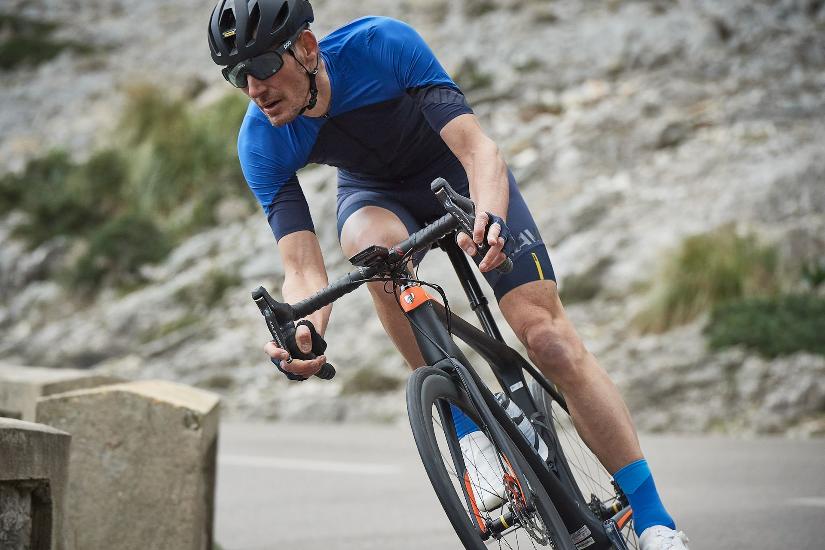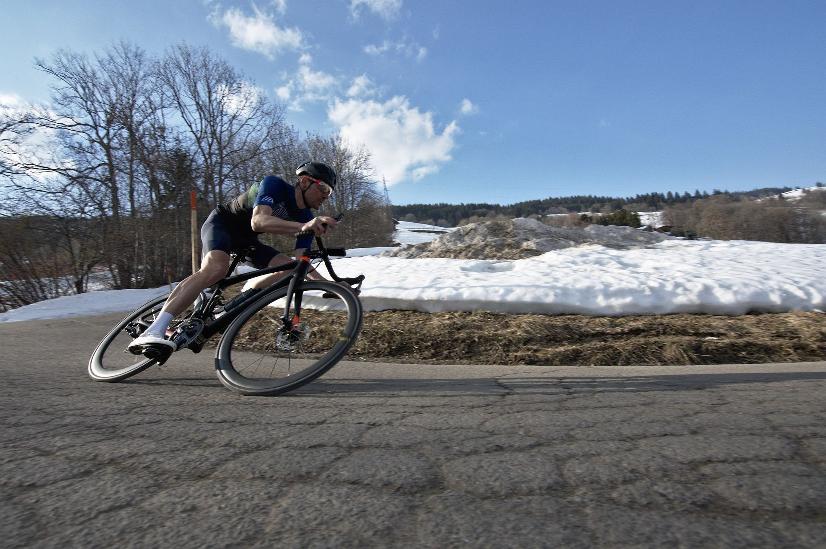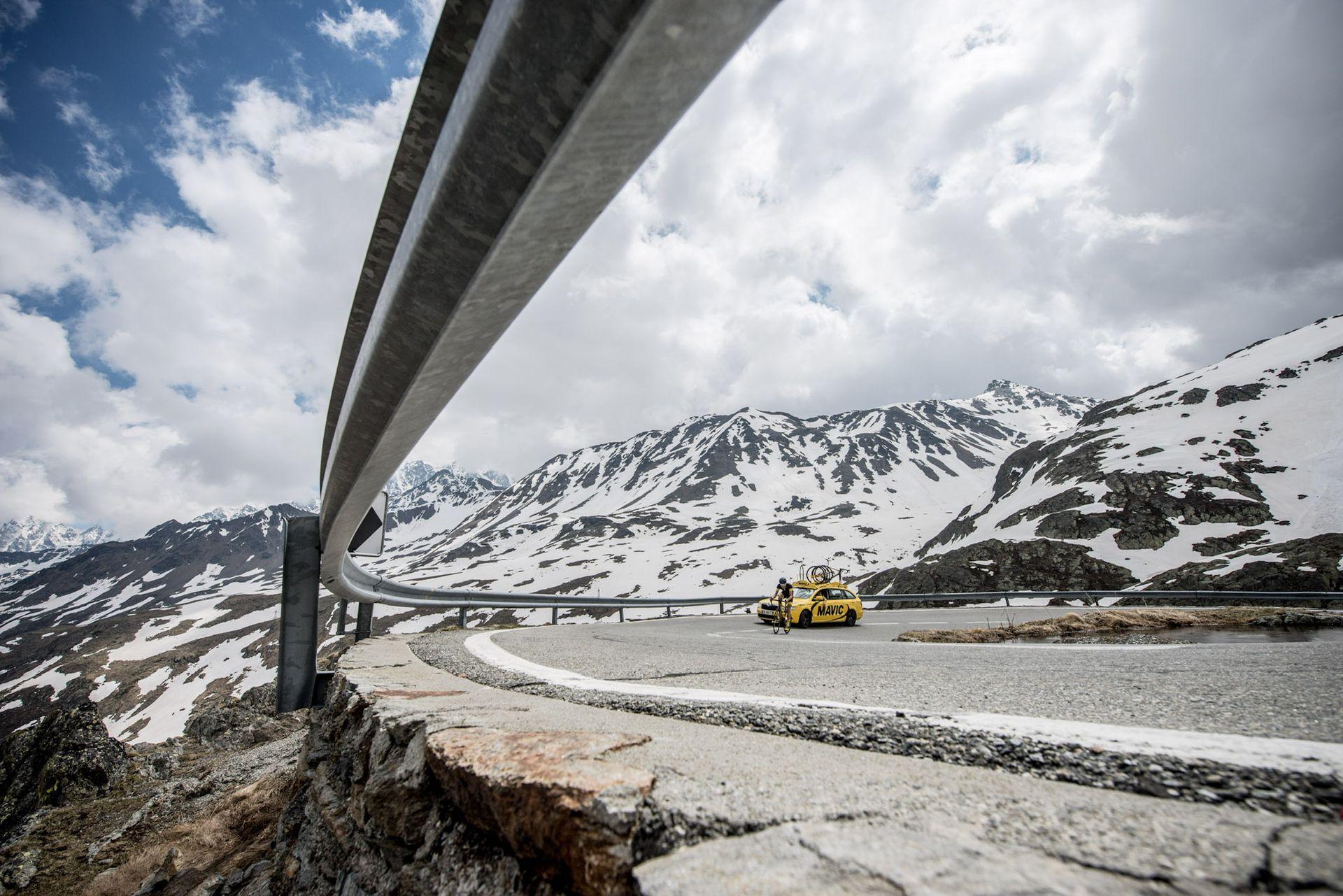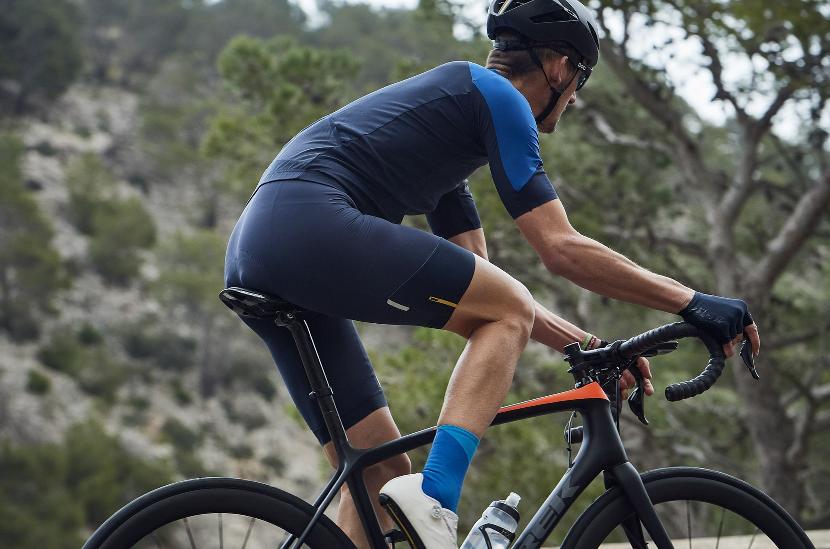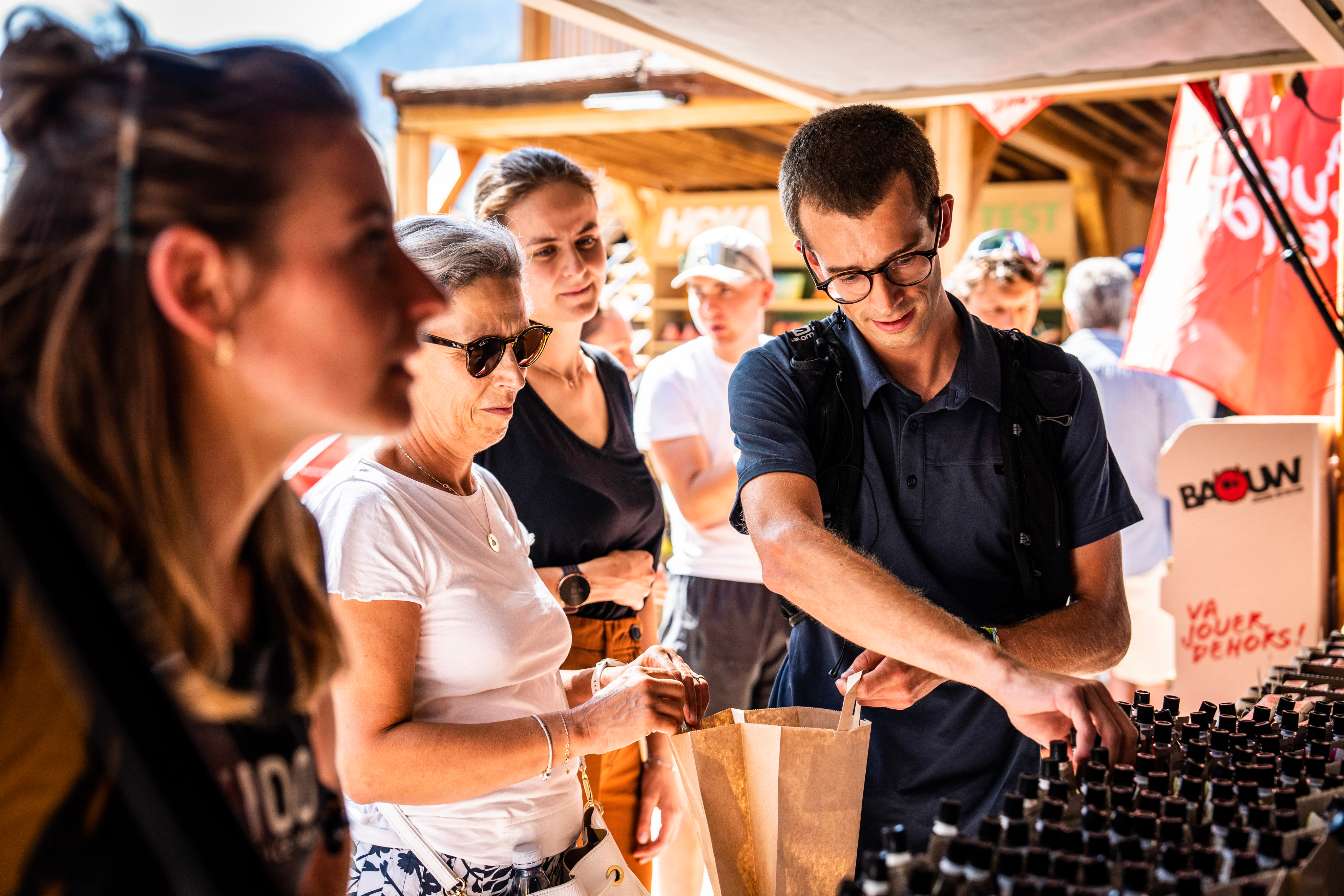La remporter est un exploit, le faire à deux reprises un véritable tour de force. Cette prouesse, notre Baouwer Nicolas Roux l’a réussie, en 2012 et 2013, après trois secondes places consécutives. Celui qui compte aussi à son palmarès le record du Tour du Mont-Blanc à vélo (330 km et 8000 m de dénivelé) ainsi que la traversée des Alpes, de Thonon-les-Bains à Nice (646 km, 17 cols et 16 000 m de dénivelé), en 26h10, soit 25 km/h de moyenne, te donne ses conseils de nutrition et te partage son plan d’alimentation pour que te réussisses ton Étape du Tour, le 10 juillet prochain, entre Briançon et l’Alpe d’Huez, en passant par le col du Galibier et par la Croix de Fer. Nicolas a brillé sur l’Étape du Tour et te conseille pour que tu y brilles à ton tour.
10 CYCLING NUTRITION TIPS BY NICOLAS ROUX, SPECIAL TOUR STAGE!
ETAPE DU TOUR, TIP NO. 1: “FIND THE RIGHT POWER-TO-WEIGHT RATIO”.
Nicolas Roux: “Cycling, especially in the mountains, with long climbs over passes such as the Galibier, Croix de Fer and Alpe d'Huez, inevitably involves a certain power-to-weight ratio. A key factor in cycling, but often subject to a few deviations. You mustn't become obsessed with your fitness weight, just find the right ratio, without over-sharpening. When I was younger, I once made the mistake of losing too much weight. I certainly felt light, but I had no strength left. I was performing much less well! To find that feeling of well-being and balance, I advise you to trust your feelings rather than the number on the scales!
ETAPE DU TOUR, TIP NO. 2: “PROTEINS AT BREAKFAST
Nicolas Roux: “My long career has taught me the crucial importance of breakfast. It's the most important meal, the one that allows you to put fuel in your engine, without putting on weight, because you then have the whole day to eliminate it. At this point, it's particularly important to pay attention to protein intake, as it binds much better and is assimilated more efficiently in the morning!”
ETAPE DU TOUR, TIP NO. 3: “REPLENISH YOUR RESERVES AFTER DIFFICULT SESSIONS”.
Nicolas Roux: 'To prepare for the Stage du Tour, you're bound to go through long outings and sometimes intensive sessions that will require your body to draw on its reserves. For my part, I'm particularly vigilant about regenerating my glycogen stocks via a rapid and regular carbohydrate intake after these tough training sessions. This vigilance increases as we get closer to the event. Then, when it's time to ease off before the race, so as to be as fresh as possible on D-Day, I try to eat fairly lightly so as not to overload the body with toxins. Nevertheless, my diet isn't draconian, it's just balanced and integrated into my way of life. I've never had the impression of being forced to make sacrifices.'
ETAPE DU TOUR, TIP NO. 4: ‘MY PRE-RACE DINNER AND BREAKFAST’.
Nicolas Roux: ‘The night before the Tour stage, I have dinner at 7pm. Rice - much easier to digest than pasta, which is processed and therefore more glutinous - chicken and possibly a beetroot salad. I go to bed around 10pm to wake up at 5am if the start is at 7am. I then have a breakfast similar to the one I have every day: two eggs or a slice of ham; a few oilseeds such as walnuts or almonds; a piece of Comté cheese, as it's a low-fat cheese that I like; wholemeal bread; and tea. Sometimes, for the biggest events, I top it off with a homemade ‘sports cake’ made from coconut milk, coconut flour and soya milk!'
ETAPE DU TOUR, TIP NO. 5: ‘START WITH SLOW SUGARS, END WITH FAST SUGARS’.
Nicolas Roux: ‘It's vital to eat right from the first hour of the race. It's true that glycogen reserves are still full, but the key is not to deplete them too early. Eating allows you to keep them intact for as long as possible and use what you eat directly as fuel. With this in mind, since the intensity of the effort will rise crescendo over the course of the 3 climbs, I plan to start with salted and protein energy bars on the Col du Galibier; then move on to fruity energy bars on the Croix de Fer; and finally, finish with energy compotes on the Alpe d'Huez, in order to keep going all the way to the finish’.
ETAPE DU TOUR, TIP NO. 6: ‘BE PATIENT, ESPECIALLY FOR THIS MOUNTAINOUS STAGE!
Nicolas Roux: ‘To succeed in this extremely mountainous stage of the Tour, with almost 5000 metres of climbing, patience is essential. It would be a big mistake to get carried away before the final climb to Alpe d'Huez. The idea is to climb the Galibier with sustained endurance, at around 140 or 150 heartbeats; the Croix de Fer at a slightly faster but comfortable pace, at around 160 heartbeats; and the Alpe d'Huez with maximum effort, at an average of over 180... The strategy is to keep your pedal to the metal and go all-in on these legendary climbs.
ETAPE DU TOUR, TIP NO. 7: ‘TAKE ADVANTAGE OF THE DESCENTS TO LOOK AFTER YOUR DIET’.
Nicolas Roux: ‘On the downhill, the concentration required by the trajectories and the impression of ease associated with a very low level of physical effort mean that you forget yourself very quickly... It's fun, you just let yourself go. As a result, it's easy to forget to hydrate and eat! Be careful, because you'll pay for this in cash as soon as you start pedalling on the next climb, with a feeling of your legs being cut off. The classic pattern when you're inexperienced is to realise, only then, that you haven't eaten anything for a long time... Unfortunately, it's already too late... The good sensations that you inadvertently let slip away will take a good twenty minutes to return!'
ETAPE DU TOUR, TIP NO. 8: ‘ANTICIPATE ALPE D'HUEZ
Nicolas Roux : « En 2011, je finis à la seconde position d’une Étape du Tour dont le juge de paix était déjà l’Alpe d’Huez. Ce que je retire de cette expérience : anticiper au mieux cette ascension d’un point de vue nutritionnel ! L’idée, pour réussir une performance satisfaisante, c’est d’être en mesure de donner son maximum dans cette montée mythique, d’être à bloc ! Or lorsque l’on est à bloc, on s’hydrate, on s’arrose, mais on mange plus difficilement. À titre d’exemple, lors de mes 41 minutes d’ascension, en 2011, je n’avais rien avalé. En revanche, j’avais optimisé ma nutrition en condensant l’apport énergétique, en m’alimentant beaucoup, dans le long faux-plat qui mène à son pied. En gros : bien manger avant l’Alpe, pour vivre pleinement son effort pendant ! »
ETAPE DU TOUR, TIP NO. 9: ‘PEDAL DOWNHILL’.
Nicolas Roux: ‘That's what cycling is all about: a sport where the intensity of the effort varies enormously, unlike trail running, for example, where the heart rate remains fairly high, even on a downhill. To avoid ‘falling asleep’ and giving your body the impression that the race is over after the first climb, I advise you to force yourself to pedal downhill. Shake your legs so that they continue to turn round and not square as soon as the road rises again’.
ETAPE DU TOUR, TIP NO. 10: ‘ADAPT YOUR NUTRITION AND HYDRATION TO THE ALTITUDE’.
Nicolas Roux: ‘The altitude will have a key impact on this 30th edition of the Stage du Tour. Indeed, the Galibier pass, culminating at 2642 m, and the Croix de Fer pass, perched at 2067 m, will take us into hypoxia, above 2000 m, where air becomes rarer. Whether you are acclimatised or not, this means you have to adapt the way you eat. You have to eat more, because energy expenditure increases, but above all you have to drink more, because the cooler temperatures make you forget how quickly you dehydrate up there.
NUTRITION PLAN FOR THE TOUR STAGE, BY NICOLAS ROUX
Nicolas Roux shares his nutrition plan for the Stage of the Tour on 10 July, between Briançon and Alpe d'Huez.
Nutrition :
Après 40mins : 1 barre énergétique protéinée bio
Après 1h10 : 1 barre énergétique bio
Après 1h40 : 1 compote énergétique bio
Après 2h10 : 1 barre énergétique bio
Après 2h40 : 1 barre énergétique bio
Après 3h10: 1 barre énergétique bio
Après 3h40 : 1 barre énergétique bio
Après 4h10 : 1 barre énergétique bio
Après 4h30 (dans la portion plate menant à l'Alpe d'Huez) : 1 compote énergétique bio
Après 4h45 : 1 compote énergétique bio
Après 5h : 1 compote énergétique bio



